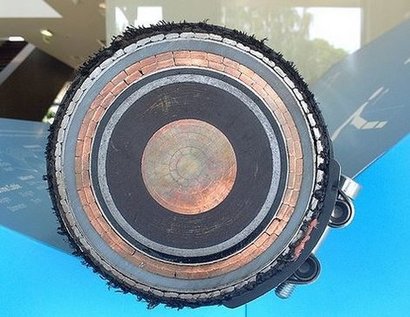
The HVDC transmission system will commence commercial operation in the middle of 2015 and will effectively double the energy exchange capacity between the two countries. Currently, this stands at 1400 MW. The HVDC link will also increase supply reliability and ensure that additional renewable energy sources can be integrated without endangering the stability of the grid.
The establishment of a European electricity market requires further interconnections to be developed, so that the 34 interconnected European countries can reap the benefit of the most effective production resources. This interconnection will enable a closer convergence in electricity prices in the European countries linked up to the markets, and will allow Europe to benefit more widely from the renewable energies generated in the Iberian peninsula.
“As a link between France and Spain, this HVDC transmission project can serve as an excellent model” said Tim Dawidowsky, CEO of the Business Unit Transmission Solutions, Siemens Energy Management Division. “It is a forward-looking approach that shows how bottlenecks in the transmission grids throughout Europe can gradually be eliminated. With our HVDC system, currently worldwide the most powerful of its kind, we have made a significant contribution to these efforts.”
Power converter stations for the HVDC link have been constructed between Baixas west of Perpignan in France and Santa Llogaia in Spain, southwest of Figueras. The system can transmit a rated power of 2000 megawatts (MW) in both directions and power reversal is possible in 150 milliseconds. The stations use Siemens HVDC Plus technology with a transmission voltage of +/- 320 kilovolts (kV) direct current (DC).
The two power converter stations are located approximately 65 kilometres from each other and serve underground DC cables running through an 8 kilometre tunnel leading into the Pyrenees Mountains. The contract for the 700 million euro project was awarded by Inelfe (Interconnexion Electrique France Espagne), a project joint venture between the grid operators Réseau de Transport d'Electricité (RTE), Paris, and Red Eléctrica de Espana (REE), Madrid.
The cable will transmit the power in both directions and the HVDC Plus technology is based on self-commutated voltage-sourced converters (VSC) in a modular multilevel converter configuration (MMC) that convert alternating current (AC) into direct current and direct current into alternating current. In contrast to grid-commutated power converter technology, the HVDC Plus system works with power transistors that can be switched off (IGBT), enabling the commutation processes in the power converter to run independently of the grid voltage. Fast control and protective intervention capabilities give the power converters a high level of stability in the transmission system. This in turn reduces grid faults and disturbances in the three-phase AC network and significantly increases supply reliability for utility companies and power consumers.
Siemens has successfully increased the capacity of this modern converter technology to 1000 MW for the French/Spain HVDC project. In addition, the project called for the implementation of technical features that could only be provided by this state-of-the-art converter technology. These features include continuous reactive power compensation independent of the energy transmission in the RTE and REE grids as well as a rapid reversal of energy flow in the event of a grid disturbance. Finally, the black-start capability function makes it possible for the HVDC transmission system to restart the affected power grid as quickly as possible.
For additional information:

